The Magic and Mystery of Introverted Intuition
Have you ever wondered how Introverted Intuition works?
I have to admit, as an INFJ I sometimes find myself at odds with this mysterious function. If you look online, you’ll describe it as so many things:
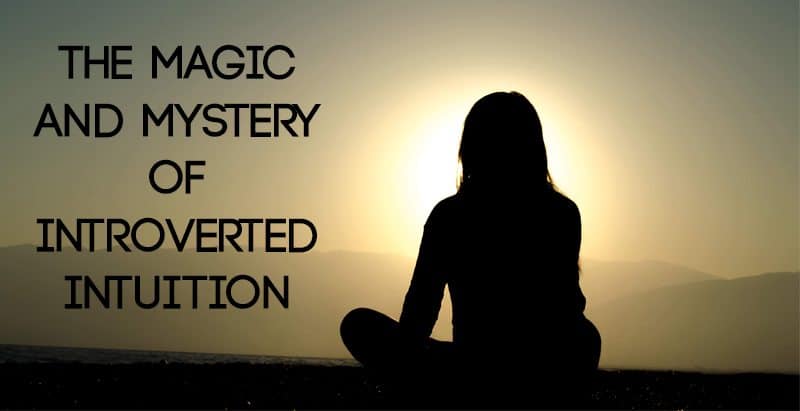
Foresight
Pattern-recognition
“Psychic powers”
Regardless of how it’s described, Introverted Intuition (or “Ni” as type geeks like me call it) can be both a blessing and a curse to live with. Often I’d love to sink into its depths and soak in all the pictures and patterns it gives me; other times my predictions are scary and unsettling. When I have foreboding premonitions I feel like I must do anything to change the scenery. I try to focus on the here and now, pushing out any negative ideas.
But most of the time I love introverted intuition; I fall in love with what could be, and what I’ve seen leading up to a moment in time that I’ve yet to encounter. Anyone with Ni as their dominant function is going to enjoy using it, but it can also get messy sometimes.
Not sure what your personality type is? Take our new personality questionnaire here. Or you can take the official MBTI® here.
Table of contents
Estimated reading time: 9 minutes
How Introverted Intuition Works
Introverted intuition is a perceiving function that sorts through conscious and unconscious data giving the user a “vision” or symbol that holds great meaning. Some typologists call Ni “perspective-shifting” and an ability to see things from many different angles to find their underlying meaning and essence.
Isabel Briggs-Myers said the greatest gifts of Ni are the “flashes of inspiration, the insight into relationships, the imagination, the originality, the access to resources of the unconscious, the ingenuity, and the visions of what could be.”
Carl Jung said that Ni is “directed toward the inner object.”
But what is the inner object?
What Jung believed was that the inner object meant the areas of the unconscious. He believed that Ni-users didn’t just consider raw, outer material, but instead preferred to look at “subjective images of things which, though not to be met within the outside world, constitute the contents of the unconscious, and of the collective unconscious in particular.”
What does this mean though? What is the unconscious or collective unconscious?
According to Jung, the psyche is made up of three separate but interacting systems. These three systems include the ego, the unconscious, and the collective unconscious.
The ego is the conscious mind. Thoughts, memories, and emotions that one is aware of are found in the ego. This is where we get our feelings of identity.
The second system of the psyche that Jung defined was the unconscious. The unconscious contains temporarily forgotten personal information, as well as abstract symbols and memories of which one may not even be aware. When we dream we often access the unconscious. In fact, many Ni-users report having especially vivid and influential dreams.
The collective unconscious contains universal primordial images and ideas. Archetypes and symbols like the tree of life, the wise old man, or the great mother live here. Carl Jung believed that the collective unconscious had great influence over people and worked to add meaning and depth to life’s experiences. He found that these archetypal images were prevalent across various cultures and throughout various times in history, and so believed that they had some unconscious power in all civilizations.
INFJs are especially attached to the collective unconscious, and often interpret life through a series of symbols and images that can be traced back in time. When they explain themselves, they often use pictures to describe something rather than a literal account of events.
As an example from my own life, instead of pondering my feelings (“I feel sad, bored, trapped, angry, cheated”) I might simply imagine myself in a bird cage tossed and turned on a stormy sea as the key to my escape sinks to the bottom of the ocean. This picture fills my mind and that feels like my reality more than actual words.
As another example, when an INJ is wasting their time they might not think, “dang it, I’m wasting my time!” They might instead imagine our bodies aging and deteriorating, the earth spinning rapidly, or other symbols that mean something to them about the passage of time. As you can see, we tend to think in non-linear pictures and see events and situations as symbolic or pre-emptive signs of things to come.
There are a lot of articles out there that will define introverted intuition as an ability to plan, but many types can plan! What makes Ni unique is that it it is focused on seeing or envisioning symbols and images from the unconscious that mean something for the future.
Introverted intuition sees the background material of what happens in daily life and is more concerned with this background material or hidden meaning than it is with what shows up on the surface. Jung said “For intuition, therefore, unconscious images acquire the dignity of things.”
How does Introverted Intuition Play Out in Daily Life?
People with introverted intuition often have gut feelings that are uncannily accurate. They are excellent at spotting trends or patterns to form a prediction of what may be. They often don’t know how they got these predictions or why, but one neuroscience expert named Dario Nardi has an idea of how it all works…
“The Ni types often show a whole-brain, zen-like pattern. This pattern occurs when all regions of the neocortex are in synch and dominated by brain waves that are medium-low frequency and very high-amplitude….What is this zen state like? When presented with a problem, the Ni types seek to harness all neocortex regions in order to “realize” an answer. Imagine a troop of blind men trying to identify a secret object by touch. One man feels a trunk and says, “tree”; another detects four legs and says “table”; a third feels tusks and says “boar”. Like the blind men, each region offers a different perspective, and a zen-like synchronous state allows the person to reconcile various perspectives to arrive at a best-fit answer (an elephant).”
Nardi goes on to say that Ni types easily show a zen state when tasked to envision the future. This is where INTJs and INFJs truly shine. Their minds synthesize a plethora of information obtained via their inferior sensing function. As this information is synthesized and sorted, they will suddenly get an image or a “hunch” about what will happen or something’s underlying meaning. These predictions can be unsettling to others, and even the Ni user themselves.
For me personally, Ni reveals insights and revelations about people that seem to come out of the blue. I remember knowing that a man was a child molester long before there was any evidence of him being one. I recall knowing my parents were in danger one night and then finding out the next day that they had been in a car accident.
Kind of weird, I admit.
Like anyone, I’ll mess up sometimes and misread something or someone. However, being Ni dominant means I think in these symbols and I’ve learned to trust these gut intuitions and hunches about life and what’s happening or could happen. INJs are always trying to think of the big picture and put together a future plan or idea composed of all the bits of sensory information we’re receiving. We support our Ni with either Extraverted Feeling (for INFJs) or Extraverted Thinking (for INTJs). These auxiliary functions help us to actually do something with our visions instead of just leaving them there. For the INFJ, feeling motivates them to connect with people or inspire them with our ideas. For the INTJ, thinking helps them to map out strategies or create innovative systems. The auxiliary function is there to help INJs bring their inner visions into the world in a tangible, real way.
The Dark Side of Introverted Intuition
All this picking up clues and connecting dots can reveal startling or upsetting future outcomes. I’ve guessed at things happening; relationships ending in very specific ways for people I know, ambitions and dreams failing, someone being in a dangerous situation or hurt. While all types can occasionally do this, Ni dominant types are often are plagued by this problem the most.
Our struggles come when we try to explain our insights and they are misunderstood because we rely so much on abstract material. You see, we don’t always know why or how we got the particular idea we currently have. Dredging up all the sensing data from our inferior function (Extraverted Sensation) can seem overwhelming. We know the facts are there, but organizing all the data and explaining it in concrete terms can feel like an exercise in futility. Nevertheless we are usually quite sure of our premonitions or predictions. Thankfully, with growth and maturity we usually get better and more proficient at explaining ourselves to people who are unlike us in their mental hardware.
The Magic of Introverted Intuition
Each personality type has unique talents that makes them shine. For some types, organizing life efficiently and streamlining tasks comes easily. For other types emotional awareness and leadership of groups comes easily.
If you’re an INJ, the magic of Ni appears when someone explains to you an idea they’ve had, and you know it will work because you can see what’s led to this point, and where things will likely go. It provides a sense of joy when you can be enthusiastic about someone’s dream, maybe even your own, because you have a visionary insight into how that dream will become a reality.
Introverted Intuition helps you to see past this moment in time to avenues of possibility into the future that others are blind to. Ni is powerful when it works with other functions like thinking, sensing, or feeling to concoct original plans or innovations. It helps you to see past what’s right in front of you and discover more than what’s on the surface. Yes, sometimes it can be misleading, but other times it feels like it’s a magical door that can unlock your true purpose, your biggest hope or dream, or an understanding of someone that nobody else has ever grasped.
What do you think?
How do you feel about introverted intuition? Have you had any experiences with it that you’d like to share? I’d love to talk to you and find out more in the comments!
Want to find out more about your intuition? Check out 10 Introverted Intuition Hacks for INFJs and INTJs
Find out more about your personality type in our eBooks, Discovering You: Unlocking the Power of Personality Type, The INFJ – Understanding the Mystic, The INFP – Understanding the Dreamer, and The INTJ – Understanding the Strategist. You can also connect with me via Facebook, Instagram, or Twitter!
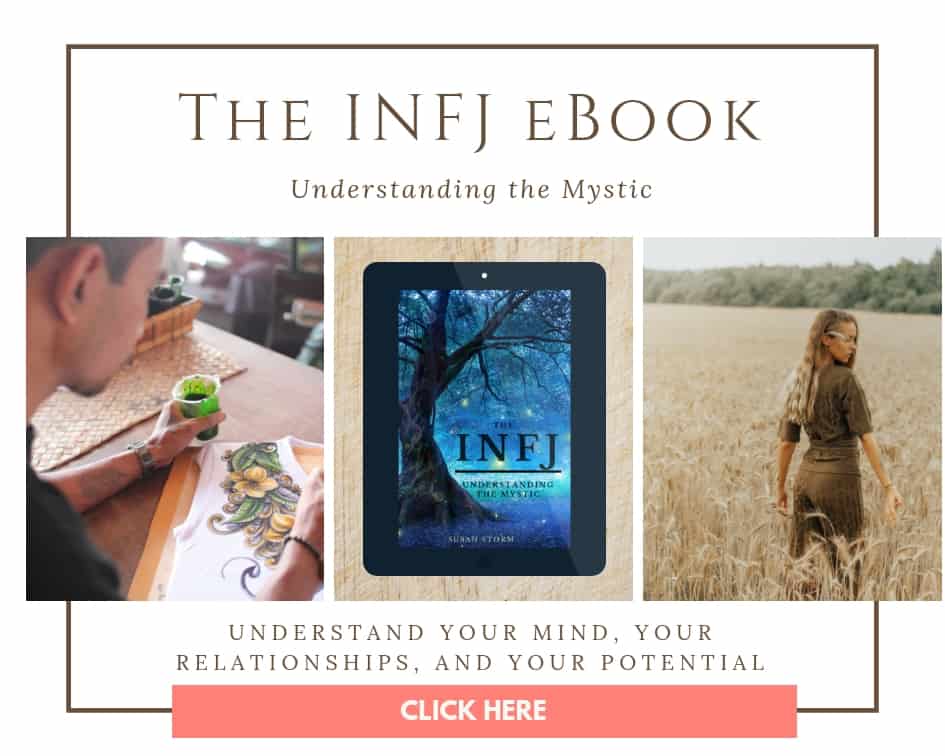
Want more articles like this?
INFJ vs INTJ: Which One Are You?
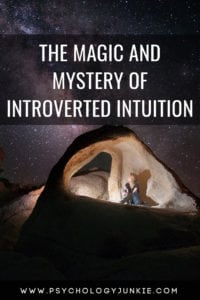
Subscribe to Our Newsletter

Want to discover more about personality type? Get the inside scoop with Susan Storm on all things typological, along with special subscriber freebies, and discounts on new eBooks and courses! Join our newsletter today!



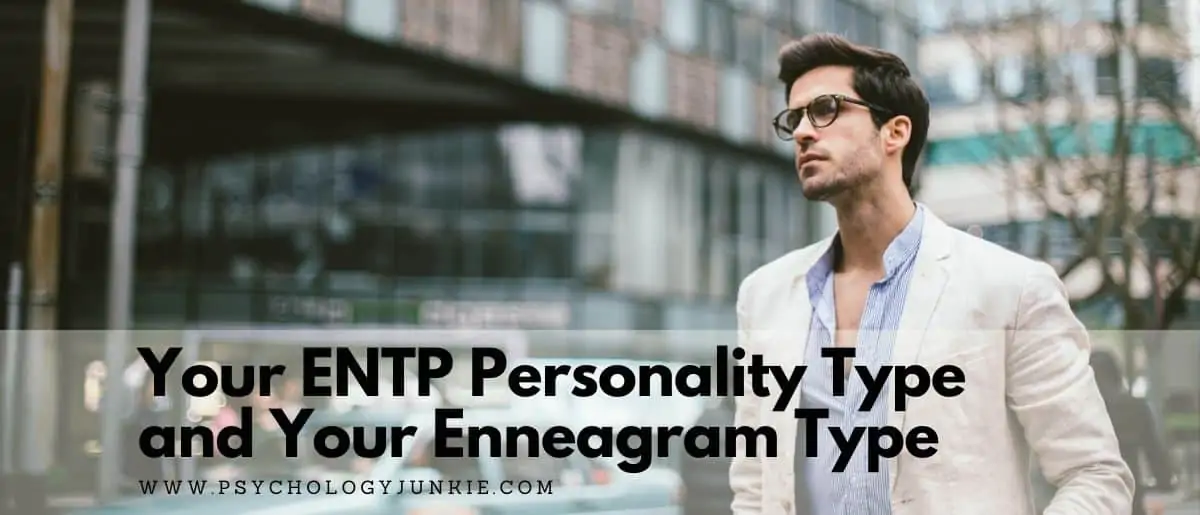
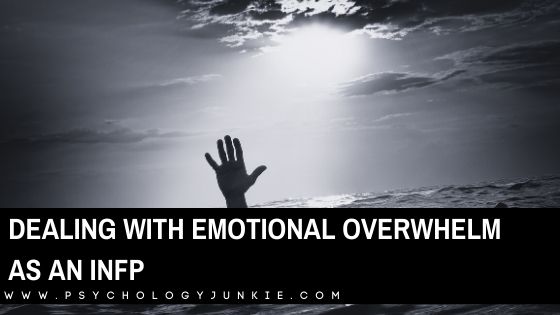
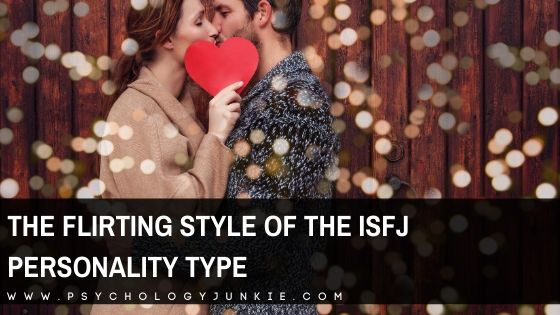


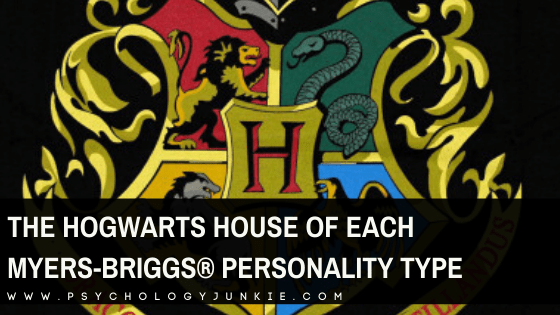

I love how clearly you articulated a function that is very hard to explain. And I love how you explained the difference in how introverted intuition manifests itself in INFJs versus INTJs. My sister is an INTJ and you described the key difference between us so well!
Thank you!! I was hoping it was easy to explain, but I always have a hard time reading my own writing and determining if I’m making things concise and clear enough 🙂 Sometimes I feel like I over-explain, other times I think I under-explain, haha. Thanks for the encouragement!
I loved this article. Sometimes I too have to filter my words, otherwise I literally get accused of being an extraterrestrial, because I just know too much about a person, even though we’ve barely talked.
Since I believe in urging people to do what they are excellent in, I like to analyse everyone, get their type, and then organize the work process accordingly to complete the job in the most efficient way possible – this is my preference for Ni over Te.
At the moment, I’m taking a gap year (more or less), and my plan is to bring out the best in me, which includes developing my inferior Se, too, and learning a new language (which will most likely be Latin). I want to use my function stack at its peak, like Sherlock Holmes, just with a touch more developed Fi, which I already have.
As for your fear of finding the right amount of explanation given: I’d say it’s always better to over-explain something than not. Sometimes people have a hard time understanding complex problems/concepts, so I’d rather make sure to tear it down to its subatomic pieces, because it will probably aid in the understanding process. This is especially true for Ti dominants – I have IxTP acquaintances, and both the INTP and the ISTP required me to explain them one single thing from at least four or five different perspectives, and of course, the ‘why’ questions followed close behind. So, I definitely say it’s always better to over-explain.
The quote you pasted here was also genius. Keep up the great work, this is the first article I’ve read by you, and I’m willing to continue doing so, because you seem competent about the functions and the MBTI theory.
Thank you so much!! I really appreciate your encouragement and advice. Your gap year sounds incredible, I wish you the best of luck with all you’re trying to do!!
I am obsessed with learning about each function well, I’m hoping to do a blog on each one. Again, thank you for the feedback!
I’m an INTJ. I had no idea it was SE that more or less “turns me off”. I’ve noticed though, I always feel better at night with less light, prefer candle light to electric lighting, and generally prefer solitude. I love being alone, but detest being “lonely”. It’s an odd contradiction, but it’s very much the truth.
As for Ni. I’m actually a Zen Buddhist. I didn’t realize the reason it made so much sense to me was because it’s an inherent behavior in Ni dominant people.
What I wonder about now is if there is a connection between Intuition in general and some of the other issues I’ve had in my life. I’ve recently begun seeing a psychiatrist because I was looking to see if I had some sort of reading disability. I thought perhaps ADD/ADHD, some form of dyslexia or some other kind of mental disability. The jury is still out on that one and I’d hoped I’d be assigned a psychologist with an MBTI background instead of a psychiatrist – but we’ll see where it goes. I’d like to not mess with my brain chemistry unless it’s necessary.
This article has me wondering about a lot of things though. Specifically – where can I find a place to refine and practice and understand the functioning of Ni. Any information you have I’d love to read!
Thanks for this article!
Thanks for reading! I’m so glad this was helpful! I think personality type can have a lot of impact on how we can handle various situations/stimuli. I hope that the psychiatrist can help – I totally understand not wanting to mess with your brain chemistry. I have PTSD and social anxiety and have always tried to steer clear of that – although sometimes in my case I think it’s necessary. I will try to write more about Ni as I discover more, and I really hope it will be helpful. I’m trying to think about which books have been the most helpful for me as far as understanding Ni….Dario Nardi’s ‘the Neuroscience of Personality’ was really good, but there were really only a few pages in there devoted to Ni. Naomi Qwnenk’s ‘Was That Really Me?’ was also really good.
Thanks again for your thoughts! I definitely appreciate it 🙂
I often see other INFJ’s write about how introverted works, but I never see explicit examples except like analogies which is great, but it’s only conceptual. I’m hoping to look to understand Ni in a practical way if that makes any sense. I understand Fe, Ti, and Se to degree. I have an incredible imagination although it’s very vague and elusive, I can’t really imagine specifics well, making my imagination not as vivid. I’ve read many many descriptions but still not getting to where it’s like I am using my head and say OH that’s how introverted intuition planned my future. Often people say well you just “know,” um. Great.
If you just know, I think that’s rather Ni not fully fleshed out or lower in another types cognitive stack, every instance something pops in my head (it’s for rather small things, not really gigantic), I always try to trace it back to where it all led up to my mind and it’s become such a habit that it’s no longer fun with the “ah hah” moments.
I don’t really have the slightest clue how I really see my future. I just only focus a single point on my head hoping everything will come together. How do I get this “future-sight” now I don’t mean psychic, but be able to see where I can go?
Is it just sitting down a lot and imagining about anything? Do you have a list of things to say this is what I may be thinking of doing.. how will it work? Am I too impatient in this world of “I want it now?” thus always never letting my intuition bloom?
I relate to many of the things of inferior Se, it seems my life has been lately all of inferior Se, I don’t do drugs or anything, but I just love powerful music that has strong beats, or club music or anything that colors my “experience.” Yet I have been very bad at sports, or overdo them black and white. I hit the ball way too hard, way too soft, most sports on TV bore me.
But I want Ni back at least in a useful way, all I have been using Ni is to imagine an illusory false image of how I am different or special, but it’s really nothing and I of course don’t go telling people “I’m better than them” because I know I’m not. Or make funny situations all the time, but my life never seems to be in order. I try thinking I had other functions but yet I don’t relate to Ne/Si Fi/Te.
I know xSTP is not my area either.
I’ve bought books, but they still have been vague on poor old me. Help? Thanks. 🙂
As an INFJ, I have “predicted” several things without explanation. However, I feel like having Introverted-Intuition, has taken a serious toll on my love life. The sentence above: “I fall in love with what could be”, describes my issue perfectly. I see how things could work out & what could (or “should”) happen between myself and a prospective partner. But, unfortunately, what “could” happen, isn’t always what does happen. And, that leads me into strong feelings of disappointment in others. I wish I knew how to break that cycle.
Agree with all that. I have to keep my intuitiveness in check. Gotten into trouble for it, with ones (almost everyone) who don’t understand.
Yes, it can be a tricky function for other people to understand! It’s hard to explain sometimes how we just ‘get’ something when we can’t exactly put it into words in a linear format.
Yes I have experience the eerily accurate intuition. I’ve accurately predicted quite a few relationships ending based on a photo or two on Facebook. Recently I saw a photo of a girl who works with my husband and asked if she was still married. He seemed surprised and then came back the next day and told me she was separated and living in an apartment. He seemed quite shocked I knew that based off a photo. I hadn’t even thought about it when I asked him it was just like the idea was there in my mind.
Good job of blurring the line between Ni and Ne way too much!!! 🙂
Can you create force field shield?
I wish!! 🙂
You’d have to ‘turn off’ your extraverted sensing 🙂
A practical way to do this is by using 4 walls, i.e. get yourself alone so you can recover. As for how to protect yourself in the outside world, which can seem overwhelming sometimes, I haven’t quite figured that one out yet. You can develop a sort of numbness or anaesthesia, which I think I have done sometimes and which are useful, but these can have consequences in terms of maintaining healthy boundaries.
Best to acknowledge your need for alone time, if you are in introverted person, I would say.